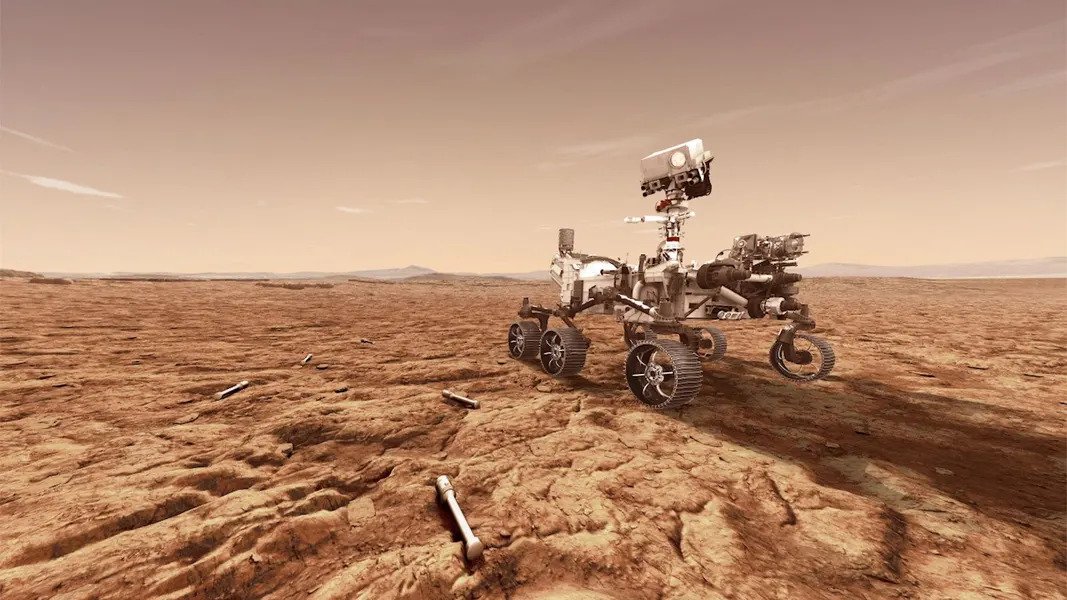Congress Surprised By NASA's Mars Program Cutback, Pushes For Funding Increase
Congress surprised by NASA's Mars program cutback, pushes for funding increase as lawmakers from both political parties criticize NASA. They labeled the decision as "short-sighted and misguided," and argued that the move could lead to job losses in California.
Author:Hajra ShannonReviewer:Paula M. GrahamNov 24, 202356 Shares55.6K Views

Congress surprised by NASA's Mars program cutback, pushes for funding increaseas lawmakers from both political parties criticize NASA. They labeled the decision as "short-sighted and misguided," and argued that the move could lead to job losses in California.
The Mars Sample Return mission aims to bring back rocks and dust collected by the Perseverance rover on Mars to Earth in 2033. However, the program has faced escalating cost estimates, and concerns about Congress reaching a consensus on a full-year budget prompted NASA to scale back the initiative in early November.
Six California lawmakers expressed dissatisfaction with NASA's decision to preemptively reduce funding for the Mars Sample Return program. They are urging the space agency to reconsider and wait until the appropriations situation is clarified before making any adjustments to the program's funding.
"This short-sighted and misguided decision by NASA will cost hundreds of jobs and a decade of lost science, and it flies in the face of congressional authority," the lawmakers wrote in a letter. "We are mystified by NASA's rash decision to suggest at this stage of the appropriations process that any cuts would be necessary."
California Representative Adam Schiff and Senator Alex Padilla, both Democrats, led a letter addressed to NASA Administrator Bill Nelson. The letter, also signed by Democrats Representative Judy Chu and Senator Laphonza Butler, along with Republicans Representative Mike Garcia and Representative Young Kim, expresses concern about the potential job cuts resulting from NASA's decision. The proposed cuts would impact NASA's Jet Propulsion Laboratory, located in California, the home state of these lawmakers, which plays a crucial role in sending robots to Mars.
"This talent represents a national asset that we cannot afford to lose, and if this uniquely talented workforce is lost to the private sector, it will be near impossible to reassemble," the letter reads.
Lawmakers emphasized the significance of NASA's scientific pursuits, particularly in the context of countering China's efforts. This point is likely to resonate with NASA Administrator Bill Nelson, who has prioritized such accomplishments during his tenure. China is also actively pursuing the mission, which entails bringing samples back from Mars for the first time in history.
The Perseverance rover, which landed on Mars in February 2021, is tasked with collecting and storing samples on the planet as the initial phase of a proposed three-step initiative. These samples will be placed in small tubes on the Martian surface, where they can remain for decades until their return journey.
In the second phase, NASA will collaborate with the European Space Agency, employing a rover named Fetch to retrieve the tubes and load them into a spacecraft roughly the size of a soccer ball. This spacecraft will launch from the Martian surface and rendezvous with a larger spacecraft orbiting Mars in the third stage of the program. The larger vehicle will release the sample-containing ball somewhere in the Utah desert.
According to an independent review, the program is at risk of missing the 2030 launch window for a sample retrieval lander because of NASA's budget cuts. The lawmakers highlight that these funding cuts could also lead to the cancellation of billions of dollars in contracts that support American businesses.
“„It is our responsibility to spend American taxpayer funding responsibly. Significant reductions in spending must be implemented immediately or the program will not have sufficient funds to last through the fiscal year.- Margaret Vo Schaus, NASA’s chief financial officer
The projected cost of NASA's Mars Sample Return initiative has experienced a significant escalation, soaring from $4 billion to potentially as high as $11 billion. The space agency released an independent review in September that attributes this sharp increase to the program's beginning with "unrealistic budget and schedule expectations from the beginning."
This considerable increase in costs has prompted apprehension about the program's feasibility among top NASA officials. Sandra Connelly, the space agency's deputy associate administrator for science, announced during a meeting on November 13 that the program would be downsized in response to the uncertainties in Congress.
"The intent is to enable sufficient funding to carry us throughout the year so we can continue working on and architecting this mission," she said.
A House bill is proposing to maintain NASA's complete funding request of $949.3 million, while a Senate bill, with language indicating a program cut if it exceeds $5.3 billion, allocates only $300 million for the agency.
As NASA awaits final congressional appropriations, it is strategically planning its budget under the current continuing resolution. This cautious approach involves preparing for the most conservative funding level, accounting for the possibility of receiving only $300 million from the Senate, according to Vo Schaus.
Finally
To prepare for a potential "worst-case scenario," where the House's continuing resolution expires, NASA has taken proactive measures. Although lawmakers passed the funding patch before the November 17 deadline, the agency is currently operating based on last year's budget of $822.3 million until the February 2 deadline.
Jump to

Hajra Shannon
Author

Paula M. Graham
Reviewer
Latest Articles
Popular Articles
